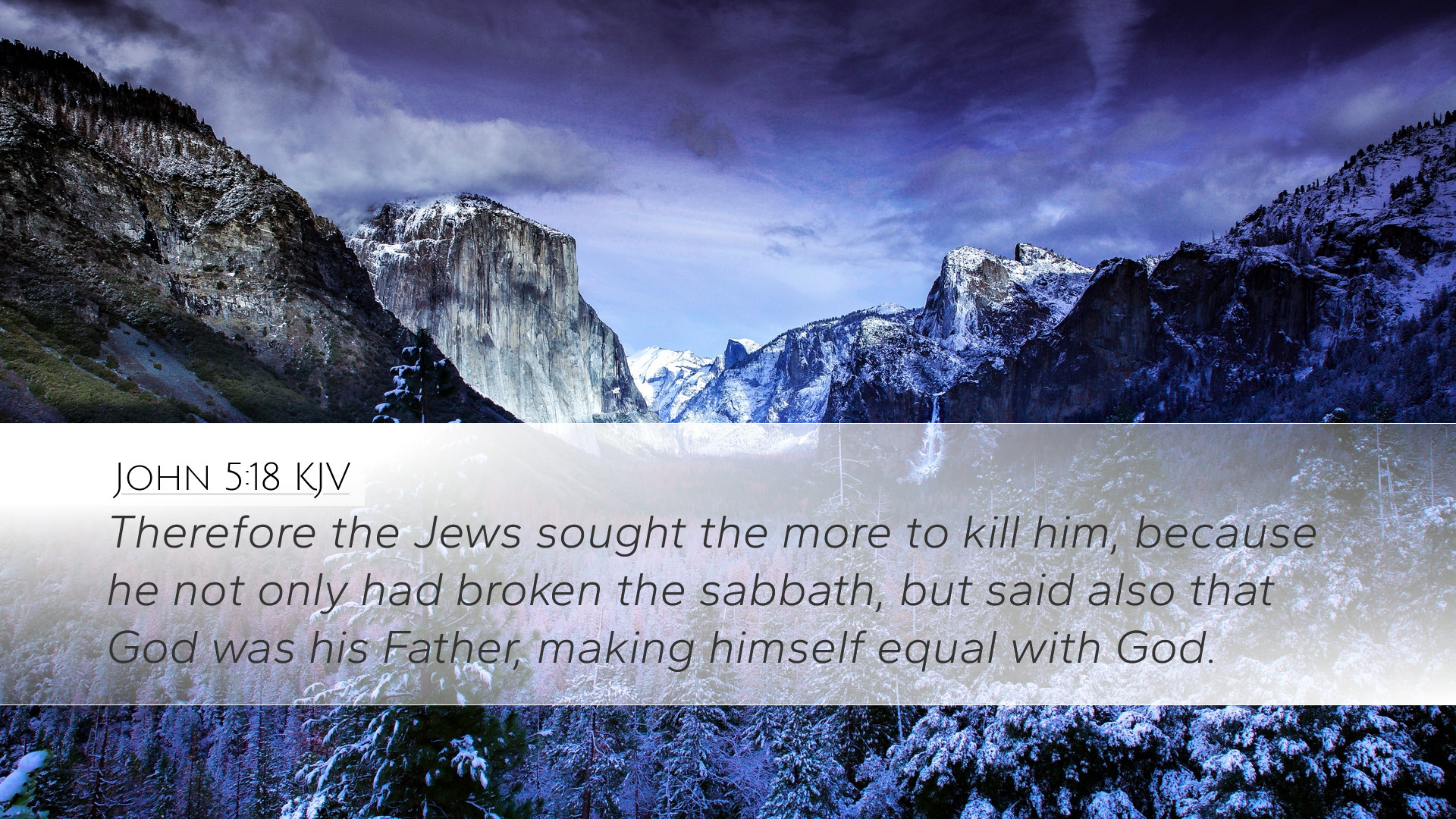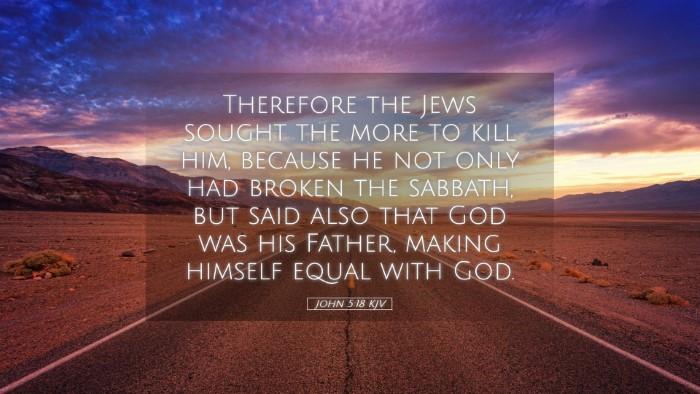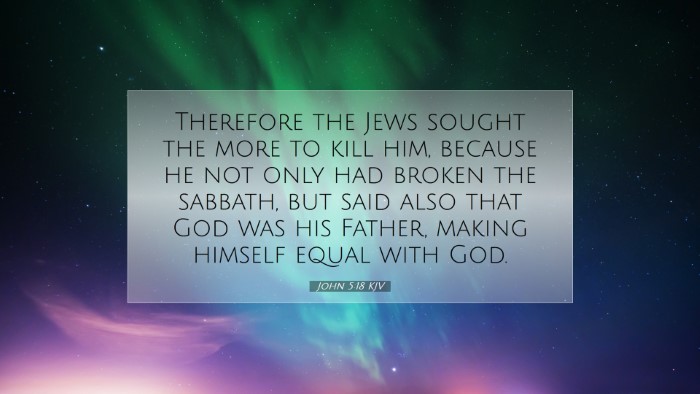Commentary on John 5:18
John 5:18 states: "Therefore the Jews sought the more to kill him, because he not only had broken the sabbath, but said also that God was his Father, making himself equal with God."
Introduction
This verse introduces a critical moment in the Gospels, where the tension between Jesus and Jewish authorities intensifies. The charge against Jesus encompasses both his Sabbath activity and his profound declarations regarding his divine sonship.
Historical Context
Understanding the historical context of this verse is crucial. The Sabbath was considered a sacred institution, and any perceived violation was taken very seriously. Jesus’ actions in healing on the Sabbath (as recorded earlier in the chapter) and his claims about his relationship with God incite the ire of the religious leaders of his time.
Theological Implications
- Blasphemy Accusation: The claim of being the Son of God is inherently linked to the concept of divinity. To the Jewish leaders, this was a profound violation of their understanding of monotheism.
- Sabath and Humanity: Jesus' actions prompted a radical reinterpretation of the Sabbath. The assertion that "the sabbath was made for man, not man for the sabbath" indicates a shift towards a more humane understanding of divine law.
- Equality with God: This verse lays the groundwork for the Christian doctrine of the Trinity and the divinity of Christ. Jesus, by equating himself with God, establishes his authority and identity as the Messiah.
Insights from Scholars
Matthew Henry
Henry highlights that the desire to kill Jesus was intensified not only by his actions but by his statements of identity. He emphasizes that the essence of Jesus' teachings revolves around his divine origin and mission. The reaction of the Jews underscores the danger inherent in the perception of Jesus challenging their authority and interpretations of Scripture.
Albert Barnes
Barnes explicates the legalistic framework within which the Jews operated, providing insight into their motives. He argues that their pursuit of Jesus reflects a broader conflict between tradition and the revolutionary spirit of Christ's message. Barnes also draws attention to the implications of Jesus’ claims, emphasizing the gravity of declaring oneself equal with God in the cultural and religious context of first-century Judea.
Adam Clarke
Clarke offers a linguistic and theological analysis, expressing the gravity of the assertion Jesus made. He points out that calling God his Father indicates a unique relationship, one that indicates the authority and power of Jesus as the Son. Clarke's commentary invites readers to contemplate the revelation of God through Jesus, who redefines our understanding of the divine nature and humanity.
Reflections for Today
For contemporary readers, John 5:18 challenges us to confront our own understanding of authority and tradition. The verse elicits questions about how we respond to perceived threats against established norms in our faith communities. It also calls us to reevaluate our perception of divine authority and grace as expressed through Christ.
Conclusion
John 5:18 is a pivotal moment that encapsulates the seeds of hostility towards Jesus, arising from his radical reinterpretation of law and his declarations about identity. This verse invites deep theological reflection and personal consideration of how Jesus’ identity and mission impact our worship, practice, and understanding of God today.


